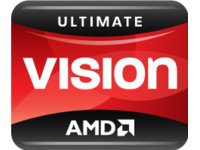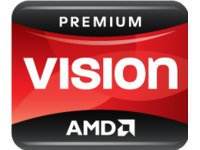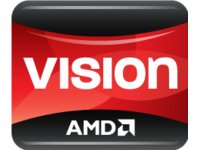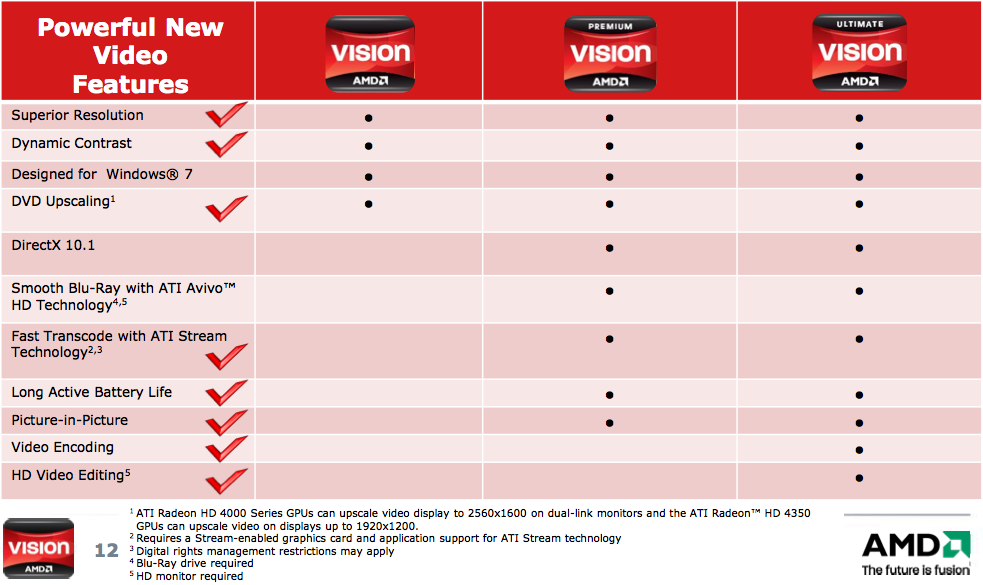AMD's Vision to Make Branding Notebooks Simpler
AMD Vision to simplify notebook branding.



Besides just launching new mobile platforms today, AMD is also bringing out a new branding scheme that hopes to simplify the computer buying experience for the mainstream consumer.
While the Tom's Hardware reader will understand the difference in notebook capabilities down to GHz, cores, cache, and GPU type, the casual shopper doesn't have much else to rely on other than immediately evaluable traits such as screen size and other outward appearances. AMD hopes to change this by bringing in a type of branding that speaks to the buyer in a good, better, best format.
Following the launch of Windows 7 and the launch of the new mobile platforms, AMD-powered systems – that is, those with both AMD CPU and ATI GPU – will be branded as Vision technology.
"Today’s consumer cares about what they can do with their PC, not what’s inside," said Nigel Dessau, CMO of AMD. "They want a rich HD and entertainment experience on their PC, delivered by the combined technology of AMD CPUs and GPUs, without having to understand what gigahertz and gigabytes mean. Vision technology from AMD reflects the maturation of marketing in the PC processing industry and communicates the technology in a more meaningful way."
AMD is adopting a naming system that we've heard before attached to Windows SKUs. Three initial tiers will hit notebooks: Vision Basic, Vision Premium and Vision Ultimate.
Vision Basic will be aligned with the idea of users being able to "See" content mainly presented via the web. Vision Premium adds the idea of being to "Share" content with greater focus of video media. Vision Ultimate brings in 3D gaming and video and music editing.
Later, in the first quarter of 2010, AMD plans to introduce a fourth level, Vision Black for an even higher tier of performance – typically sought after by enthusiasts and gamers.
Get Tom's Hardware's best news and in-depth reviews, straight to your inbox.
-
Easier to understand information is always better for the non-technical pc buyer, as long as it is correct and does what it says on the tin!Reply
There are enough cases of misleading information on product out there already (vista capable anyone?) so lets hope AMD do this right -
Pei-chen AMD and "Ultimate" mobile platform? What an oxymoron. AMD needs to spend more on their mobile CPU R&D and less on marketing. You won't sell much if yours fastest mobile CPU is 25-30% the speed of Intel's Quad mobile CPU.Reply -
The question is, will AMD be certifying these products? Or the OEMs that are building the computers? If it's the OEMs, how much can AMD enforce the standards they set out there?Reply
I can see those being the main source of inaccuracies. I'd tend to trust something that had AMD behind the certification at this point. They have a lot more to lose by misleading people on this right now. Being the underdog (which they definitely still are compared to Intel) you can't afford the negative PR from an apparent attempt to mislead the consumer. -
ptroen This idea is doomed. Once the consumer gets confused if the notebook is directx11 compatible it's all over.Reply -
Supertrek32 moriconEasier to understand information is always better for the non-technical pc buyer, as long as it is correct and does what it says on the tin!There are enough cases of misleading information on product out there already (vista capable anyone?) so lets hope AMD do this rightAccording to the chart, the "Ultimate" systems use less power ("Long Active Battery Life") than the basic ones. If anything, they just have more battery cells. Using the same battery, though, better graphics cards typically use more power. Seems rather misleading... =/Reply -
leon2006 Too much marketing with little results... Too many fancy statements but with few good products.Reply
AMD is a minority in the notebook business.
AMD is a none-entity in the netbook business. -
cloakster supertrek32According to the chart, the "Ultimate" systems use less power ("Long Active Battery Life") than the basic ones. If anything, they just have more battery cells. Using the same battery, though, better graphics cards typically use more power. Seems rather misleading... =/Reply
Your right, they can't honestly tell consumers that gaming laptops have good battery life.

